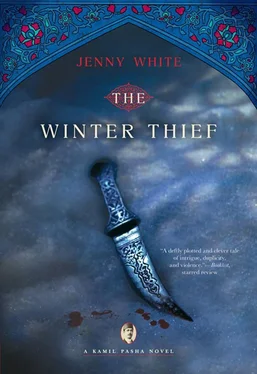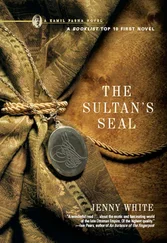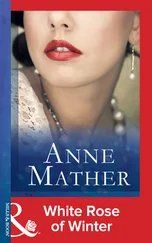Jenny White - The Winter Thief
Здесь есть возможность читать онлайн «Jenny White - The Winter Thief» весь текст электронной книги совершенно бесплатно (целиком полную версию без сокращений). В некоторых случаях можно слушать аудио, скачать через торрент в формате fb2 и присутствует краткое содержание. Жанр: Исторический детектив, на английском языке. Описание произведения, (предисловие) а так же отзывы посетителей доступны на портале библиотеки ЛибКат.
- Название:The Winter Thief
- Автор:
- Жанр:
- Год:неизвестен
- ISBN:нет данных
- Рейтинг книги:5 / 5. Голосов: 1
-
Избранное:Добавить в избранное
- Отзывы:
-
Ваша оценка:
- 100
- 1
- 2
- 3
- 4
- 5
The Winter Thief: краткое содержание, описание и аннотация
Предлагаем к чтению аннотацию, описание, краткое содержание или предисловие (зависит от того, что написал сам автор книги «The Winter Thief»). Если вы не нашли необходимую информацию о книге — напишите в комментариях, мы постараемся отыскать её.
The Winter Thief — читать онлайн бесплатно полную книгу (весь текст) целиком
Ниже представлен текст книги, разбитый по страницам. Система сохранения места последней прочитанной страницы, позволяет с удобством читать онлайн бесплатно книгу «The Winter Thief», без необходимости каждый раз заново искать на чём Вы остановились. Поставьте закладку, и сможете в любой момент перейти на страницу, на которой закончили чтение.
Интервал:
Закладка:
Kamil raised his hand in farewell, then turned and walked away through the morning mist. “A magistrate without principles,” he muttered to himself, shaking his head. “What’s left?” he asked, louder. His voice echoed between the houses in the early-morning stillness.
Elif had returned and was waiting for him in the dining room, where Yakup had laid out breakfast. The sight of her slight form and keen eyes was as heartbreakingly lovely as the flower-strewn meadow outside his window.
Elif stirred her tea. Kamil sat down and for a moment was captivated by the delicate clink of her spoon against the glass. “So fragile,” he said, half to himself.
“What is?” she asked, handing him the glass of hot tea.
The best-brewed tea is the color of rabbit’s blood in the glass, Kamil remembered his mother saying. Not knowing what to answer, he drew Elif close, then closed his eyes and sipped the scalding liquid.
Vera saw Chief Omar on the docks that morning, supervising the loading. Now clean-shaven except for his extravagant mustache, he leaned on his staff and bellowed orders. The local doctor had cleaned his wound and rebandaged it. It seemed to be healing, but the police chief had been warned to watch for infection. Vera was amazed that after all their travails, the eight remaining soldiers from the pasha’s force of thirty were still willing to march in formation as if they made up a company. In two hours they all would embark on new lives, but, she was sure, not lives any of them would have recognized two months earlier.
93
Sultan Abdulhamid received Kamil in his private quarters. Kamil could hardly believe three months had passed. Everything looked the same: the furnishings of the receiving hall, the sultan’s formal gold-braided suit, the tip of his sword embedded in the pile of the carpet. Enormous gilt-edged mirrors at the sides of the room reflected each other, as if opening a tunnel into the void. Dozens of officials and servants stood in formation along the walls, with Vizier Köraslan by the sultan’s shoulder. Only this time the French doors to the garden stood open, admitting a soft breeze. Birds rioted in the hydrangeas.
Kamil bowed before the sultan, then stepped back, keeping his eyes lowered.
The vizier walked over and closed the French doors. Kamil’s ears rang in the sudden silence.
“I’m glad to see you returned safely, Kamil Pasha.” Kamil thought he heard a trace of genuine concern in the sultan’s voice. “If you would be so kind, sit and tell me your account of events in the east.” The sultan indicated a brocaded chair.
As Kamil sat down, he felt the full weight of the exhaustion that had dogged him since his return. He straightened and took a breath. “From my inquiries, I estimate three to four hundred dead, most killed by the Kurdish irregulars, but many refugees died on the road of hunger, cold, and disease.” He couldn’t think what else there was to say.
The sultan waited for Kamil to continue. When he remained silent, Sultan Abdulhamid asked, “And what of the revolt? That was your purpose, was it not, to investigate the revolt?”
Kamil looked up into the black eyes of the sultan. He could read nothing in them, neither concern nor interest. “There was no revolt, Your Highness.”
“We have reports that there were hundreds of weapons in the villages as well as in the monastery where your supposed socialists set up their commune. I suppose those weapons all grew in the meadows like spring flowers.”
“The guns were taken from the arms shipment the police intercepted in Istanbul in January.”
“I thought the police had confiscated those,” the sultan exclaimed, turning to Vizier Köraslan for explanation.
“The cargo was moved to Yorg Pasha’s warehouse,” the vizier admitted. “The British company wanted its ship back, and we thought that was the best place to store the guns. As far as I know, they’re still there.”
“You didn’t know they had been stolen?”
The vizier flushed.
“What of your Akrep sources?” the sultan asked impatiently. “Surely they knew. This was under their jurisdiction.”
Vahid had let the vizier down, Kamil thought with satisfaction. The Akrep commander had been away in the east. Did Vizier Köraslan know that?
“Perhaps Yorg Pasha didn’t report them stolen. I’ll find out, Your Highness.”
“Do.” Sultan Abdulhamid turned back to Kamil. “Hundreds of weapons in the hands of Armenians in the east, right on the border with Russia, and yet you claim there was no revolt.”
“The weapons were distributed only after word spread of an impending attack on the villages.”
“How do you know that?” the vizier snapped.
“The news of the attack was in a telegram waiting for me in Trabzon. I have it here.” He handed the vizier the telegram. “By the time I arrived, the entire region had learned of its contents.”
“The villagers, led by these Armenian socialists, attacked our troops.” The vizier’s face was flushed with outrage.
How do you explain a massacre, Kamil wondered, except in parables? “Your ten-year-old son is feeding the cow,” he began, “and a soldier kills him with an ax to the back of his head. You go to protest, and you too are brought down. All the men of the village and older boys are herded together in the square and killed. Not shot, but axed, to save ammunition. Then the soldiers break down the doors shielding the women and girls. Their fate is worse.”
“What in Allah’s name are you talking about?” Vizier Köraslan shouted. “How dare you profane the padishah’s presence with such nightmarish lies?”
“If you could get hold of a gun, what would you do?” Kamil continued calmly.
“That is not the behavior of an Ottoman soldier,” Sultan Abdulhamid said, his voice tight. “Are you insulting our army?”
“No, Your Glorious Majesty. The Ottoman army is a professional force. The soldiers you sent with me were obedient, dutiful, and fought bravely.”
“Who were they fighting?” Vizier Köraslan asked triumphantly, so that Kamil knew Vahid was back in Istanbul and had told him.
Kamil lowered his eyes and answered in a soft voice, “The wolves of the steppes devour the lambs and blame the shepherd.” He felt very weary and incapable of explaining.
“Stop talking in riddles,” the vizier snapped. “You suborned the sultan’s household troops to fight against the empire.”
Kamil raised his eyes and looked Vizier Köraslan full in the face. He saw fear behind his arrogance. “The Akrep commander led the offensive against the population, so you can place blame either way.”
Kamil saw the sultan glance sharply at Vizier Köraslan, and the vizier grow thoughtful. Vahid was rapidly becoming a liability, Kamil reflected with a trace of smugness.
“Kamil Pasha”-the sultan leaned forward, and Kamil heard a thin vein of compassion in his voice-“I understand you have been through a difficult time. I have also heard that you used a great part of your own fortune to save the lives of the refugees that descended upon Trabzon. Let us leave aside the question of who shot at whom and deal with the matter immediately at hand. I commend you for your humanity and your generosity. You are a true Ottoman.
“Once the engagement was over, the women and children deserved bread and a roof over their heads. If you hadn’t stepped in, the loss of life would have been tremendous. The empire has already come under attack by foreign journalists for supposedly attacking defenseless villagers. Whether or not they were defenseless is a question it seems we must disagree on. But if many more had died on the outskirts of Trabzon, the consequences for the empire would undoubtedly have been severe. Britain or Russia might have felt called upon to intervene. As it is, the newspapers took note of your admirable efforts and the world has already forgotten the Choruh Valley. You are quite an international hero, you know.”
Читать дальшеИнтервал:
Закладка:
Похожие книги на «The Winter Thief»
Представляем Вашему вниманию похожие книги на «The Winter Thief» списком для выбора. Мы отобрали схожую по названию и смыслу литературу в надежде предоставить читателям больше вариантов отыскать новые, интересные, ещё непрочитанные произведения.
Обсуждение, отзывы о книге «The Winter Thief» и просто собственные мнения читателей. Оставьте ваши комментарии, напишите, что Вы думаете о произведении, его смысле или главных героях. Укажите что конкретно понравилось, а что нет, и почему Вы так считаете.












